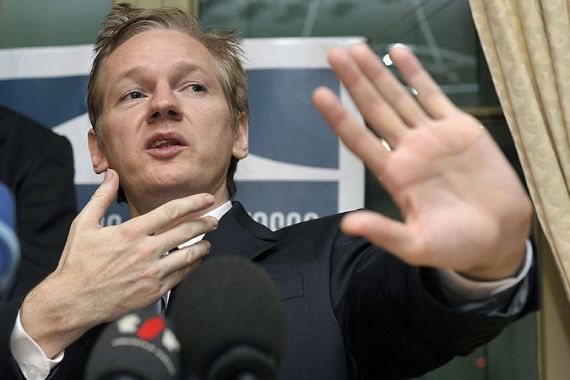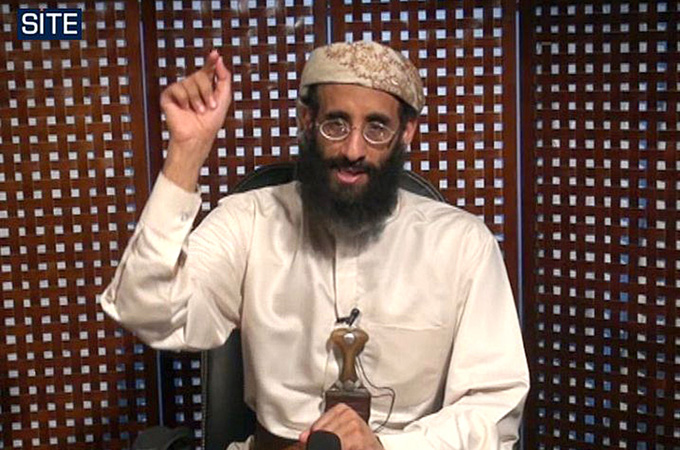Yemen covered up US air strikes
Tranche of diplomatic files describe hazy geopolitical events and add color to military interaction around the world.

 |
| US officials have stressed that Sanaa will lead the fight against al-Qaeda fighters on Yemeni soil [AFP] |
WikiLeaks on Sunday unleashed a torrent of US cables detailing a wide array of potentially explosive diplomatic episodes, from a tense nuclear standoff with Pakistan to North Korean missile sales to Iran, The New York Times reported.
The cables describe the bazaar-like bargaining over the repatriation of Guantanamo Bay detainees, a Chinese government bid to hack into Google, and the Saudi king’s repeated appeals to the US to strike Iran to halt its nuclear programme, urging Washington to “cut off the head of the snake”.
They detail plans to reunite the Korean peninsula after the North’s eventual collapse, according to The New York Times, one of a handful of international media outlets that gained early access to the documents.
The cables also air suspicions about Saudi donors financing al-Qaeda and US failure to prevent Syria from providing a massive stockpile of weapons to the Lebanese Hezbollah militia since 2006.
Most of the 251,287 cables – many of which are marked “classified” but none “top secret” – date back to 2007, but the release also includes cables going back as far as 1966.
Covering up US air strikes
Yemeni President Ali Abdullah Saleh admits covering up US military strikes on al-Qaeda in Yemen by claiming they are carried out by Yemeni forces, according to US documents leaked by WikiLeaks.
“We’ll continue saying the bombs are ours, not yours,” Saleh said in January talks with General David Petraeus, then commander of US forces in the Middle East, according to a leaked cable published by The New York Times.
The cable was sent by the US ambassador to Yemen, the daily said.
The daily said the remarks prompted Yemen’s deputy prime minister to “joke that he had just ‘lied’ by telling parliament” that Yemeni forces had staged the strikes against al-Qaeda in the Arabian Peninsula, al-Qaeda’s Yemeni arm.
On November 16, US defence secretary Robert Gates said providing equipment and training to Yemeni security forces offered the best way to counter the threat posed by al-Qaeda.
Chinese cyber attacks
The US believes that Chinese authorities orchestrated a hacking campaign into computers of Google and Western governments, according to leaked documents cited by The New York Times.
The secret cables released by whistleblower site WikiLeaks included one in which the US embassy in Beijing cited “a Chinese contact” who pointed to a government role in the hacking, the newspaper said.
“The Google hacking was part of a coordinated campaign of computer sabotage carried out by government operatives, private security experts and Internet outlaws recruited by the Chinese government,” the newspaper said, citing the cable.
Chinese operatives are also believed to have broken into computers of US and Western allies along with those of Tibet’s exiled spiritual leader the Dalai Lama, it said.
Google announced in March that it would no longer follow the communist government’s instructions to filter searches for sensitive material after what it said were co-ordinated cyberattacks against the firm.
The hacking included infiltration of the Gmail accounts of Chinese dissidents.
Hacking campaigns originating from China have been reported before, including in a recent study by the US-China Economic and Security Review Commission.
But US officials have stopped short of publicly accusing Beijing of cyber warfare, saying that the hacking could be the work of Chinese not linked to authorities.
N Korean aid to Iran
US intelligence believes Iran has obtained advanced missiles from North Korea capable of striking Europe, according to US documents leaked by WikiLeaks and cited by The New York Times.
The newspaper said “secret American intelligence assessments have concluded that Iran has obtained a cache of advanced missiles, based on a Russian design”.
Iran obtained 19 of the North Korean missiles, an improved version of Russia’s R-27, from North Korea, one of the cables said, and was “taking pains to master the technology in an attempt to build a new generation of missiles.”
At the request of US President Barack Obama’s administration, The New York Times said it had agreed not to publish the text of that cable.
“The North Korean version of the advanced missile, known as the BM-25, could carry a nuclear warhead,” said the newspaper, adding it had a range of more than 3,000km.
“If fired from Iran, that range, in theory, would let its warheads reach targets as far away as Western Europe, including Berlin. If fired northwestward, the warheads could reach Moscow,” it said, referring to other dispatches.
“The cables say that Iran not only obtained the BM-25, but also saw the advanced technology as a way to learn how to design and build a new class of more powerful engines,” said the Times.
Julian Assange, the whistle-blower website’s chief, had earlier described the release as a “diplomatic history of the United States” that would cover “every major issue” as governments braced for damaging revelations.